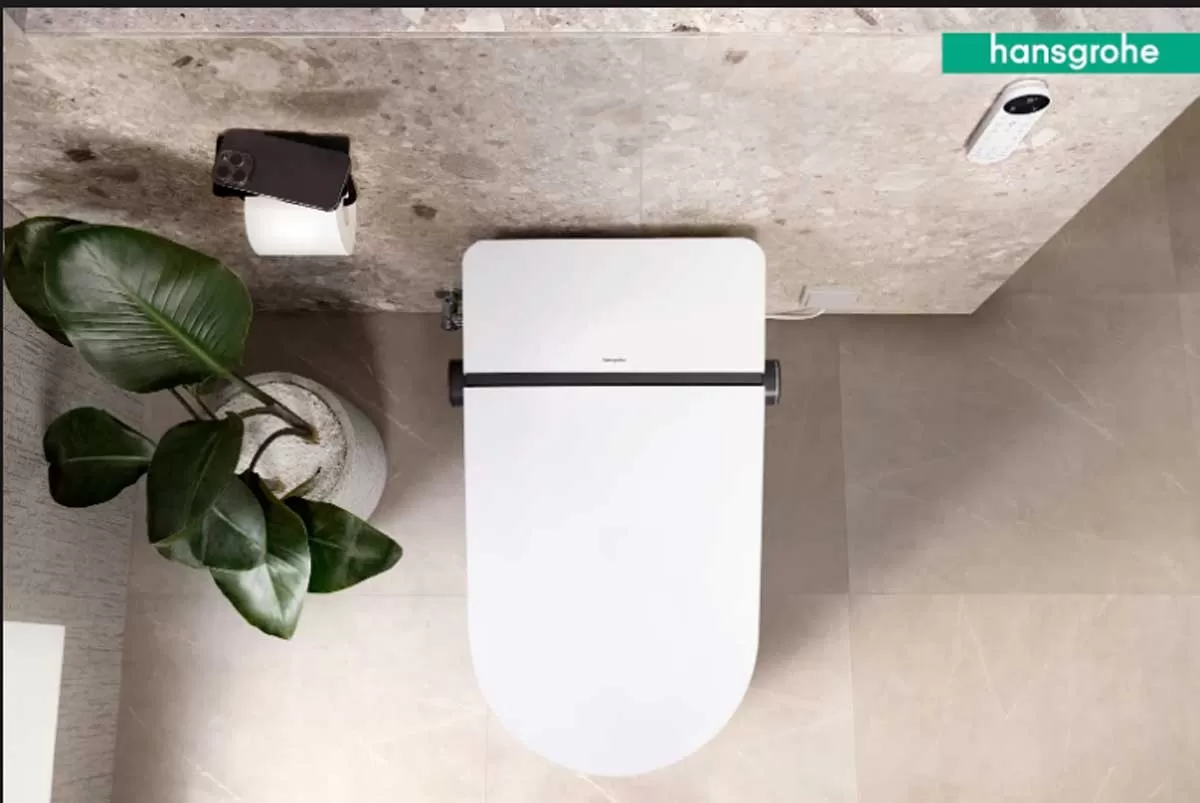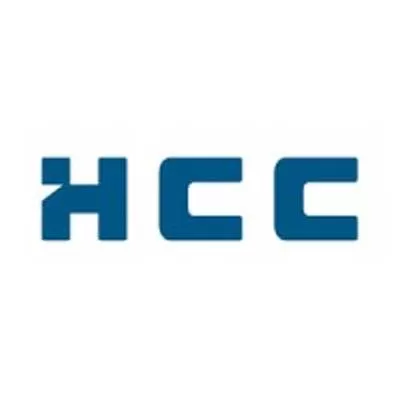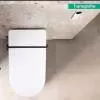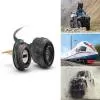After hitting a record, compaction equipment sales is poised to grow with infrastructure projects boosting demand.
India saw sales of more than 500 compactors in March 2017, the highest ever in a month, according to industry sources. Further, the last fiscal turned out to be one of the finest in a long time for compactor and paver sales, all because road development topped the 20 km per day mark.
'Recently, the compactor market has shown 25-30 per cent growth for both soil and tandem rollers,' says Ramesh Palagiri, Managing Director & CEO, Wirtgen India. 'Demand for slipform pavers and texture curing machines goes together, as the self-propelled texture curing machine follows the paver to help achieve the desired concrete surface texture.'
'Strong demand from the roads and highways sector has increased demand for earthmoving and construction equipment, including compactors,' says Jasmeet Singh, Head-Corporate Communications and External Relations, JCB India.
Of late, asphalt compactors have seen more takers than soil compactors because projects awarded by the National Highways Authority of India (NHAI) and Pradhan Mantri Gram Sadak Yojana (PMGSY) specify the use of tandem vibratory rollers and asphalt pavers, says Rajinder Raina, General Manager-Strategy & Business Development, Escorts Construction Equipment. 'Mini tandem vibratory rollers have also seen significant growth.'
'With the budgetary support increasing, more road and rail projects are being awarded.
With new national and state highways, the dedicated freight corridor segment and other railway projects coming in, the demand for compaction equipment is also increasing; while tandem rollers are seeing demand for repair and maintenance jobs for national and state highways,' says Anil Mudgil, Vice President-CED & RCED, Action Construction Equipment.
Bright prospects
With the Indian Government pressing ahead with ambitious road construction goals of 41 km per day, Dimitrov Krishnan, Vice President and Head, Volvo CE India, expects the demand for compaction equipment to grow consistently:
'So long as the government remains committed to putting the right infrastructure in place for future growth and the development of India, we see solid demand for productive and profitable equipment.'
'With the spurt in the award of road contracts over the last 18 months, we expect the demand for asphalt sensor pavers to witness a steady increase, more in the 5-6 m class, which would mostly cater to state highway projects,' says Sunil Sapru, Region Director-India, Ammann Apollo India. 'Governments requiring the use of sensor pavers even for municipal roads, city roads, etc, will improve utilisation rates. Airports, smart cities and racing tracks also present opportunities.'
ôWe expect the road construction industry to grow by 20-25 per cent in this fiscal, and the upward trend is likely to continue for the next two to three years. We also expect the demand from the irrigation segment to grow,' says Mudgil.
'We expect compaction equipment to grow at more than 12-15 per cent during the ongoing fiscal, and to contribute to our top-line and bottom-line to that extent. As a percentage of the top-line it is important - strategic but not too big a contribution,' says Raina.
'NHAI, PMGSY, state road, some dedicated freight corridors, coastal roads, port connectivity and prestigious projects in the North East will drive compactor demand in the next two to three years.' Singh says that recent road projects announced will further boost demand.
Technology averse
National highway projects are boosting demand for compaction equipment, but road contractors continue to use standard machines. 'We do not see a demand or inclination for newer technologies,' says Blesson Varghese, Managing Director, Fayat Group India.
'The initial investment rather than the life-cycle cost continues to be a major aspect for decision-making in India. This mindset drives the need for basic machines and deters high quality and high performance machines, which is a smart long-term investment.'
Still, manufacturing companies are introducing India to the latest technology at competitive prices to suit price-sensitive Indian buyers.
'With manufacturers offering regular upgrades, vibratory compactors in India conform to NHAI guidelines for delivering the requisite compaction as well as adhering to contemporary technology,' says Raina. 'From a users' perspective, the machines deliver the desired output economically. The market is so competitive that the customer gets value for his money.'
Compaction meters
To help the machine operator achieve uniform compaction and stop after the appropriate number of passes, JCB India's range of compactors feature an in-built compaction meter, the first to be designed and developed in India.
BOMAG compactors offer the Economizer meter, which shows the operator the degree of compaction to eliminate unnecessary passes and over-compaction, reduce the need for inspection, and achieve uniform, high quality compaction. The Terrameter measures the level of stiffness EVIB in million per sq m, a value correlating directly to the EV1 or EV2 values from the plate load test. According to Varghese, 'Showing the operator the trend as well as the specific and absolute measured value makes it easier to work towards the required stiffness level specified by the client.'
Automation systems installed on compactors are unique and useful in helping eliminate human error and judgement, says Vidhushekhar, Purchase Manager, Valecha Engineering. 'This is important because varying judgement can lead to different compaction combinations at different stretches, which adversely impacts the final surface quality.'
Also, cost savings ensue from using automated compactors, Vidhushekhar says, '...because pre-fed data determines the number of passes, thus eliminating the fuel cost involved in over-compacting and the extra labour and material involved in redoing the stretch in the eventuality of under compaction.'
'When we buy a compactor, we look at the centrifugal force exerted by the drum, a high energy drum of a suitable size and thickness compacts in fewer passes, saving time,' says Prabhu Dayal Agrawal, Managing Director, PD Agrawal Infra. 'The compactor is supplied with an intelligent compaction analyser, which helps in determining the number of passes required and confirms on achieving the density.'
Additionally, Agrawal considers the build quality of the machine, which impacts its life, also the brand's reputation and reputation for after-sales services. Vidhushekhar also looks for a good price, quality and versatility in a machine, and evaluates its popularity and reputation for delivering.
Rural roads
Developers of rural road projects are more conscious about upfront costs than those developing national highways, and hence, look out for less expensive solutions, like machines with just the bare essential features. According to Varghese, customers in India have the option of selecting from Essential, Value and Premium features on Fayat's range of products to suit their investment capability.
Ammann Apollo offers an entire range of sensor pavers in the wheeled and tracked segments from 2.5-10 m paving widths, to suit narrow roads, city roads of paving width 5.5 m, and broader roads of 7 m paving width. 'We can also offer a small paver with 1.5 m paving width for various applications, including asphalt walkways,' says Sapru.
Sometimes, road projects are implemented in remote regions where raw ingredients are unavailable. Recently, a Wirtgen soil stabiliser was used for a project in a difficult terrain in Tripura. 'It can also be used where aggregates are not readily available,' says Palagiri.
JCB's VMT330 3.3T mini tandem roller finds great use in rural road applications given its compact size. Pavers used for rural or straight roads are smaller in size than those used for national highways and expressways.
QUICK BYTES
- Last fiscal: One of the finest in a long time for compactor and paver sales.
- Expected growth for compaction equipment at over 12-15 per cent this fiscal.
- Increase in demand with upcoming national and state highways, dedicated freight corridor and other railway projects.
- Charu Bahri
For the full version, log on to www.ConstructionWorld.in
To share your insights on the market for Paving and Compaction Equipment, write in at feedback@ConstructionWorld.in


















